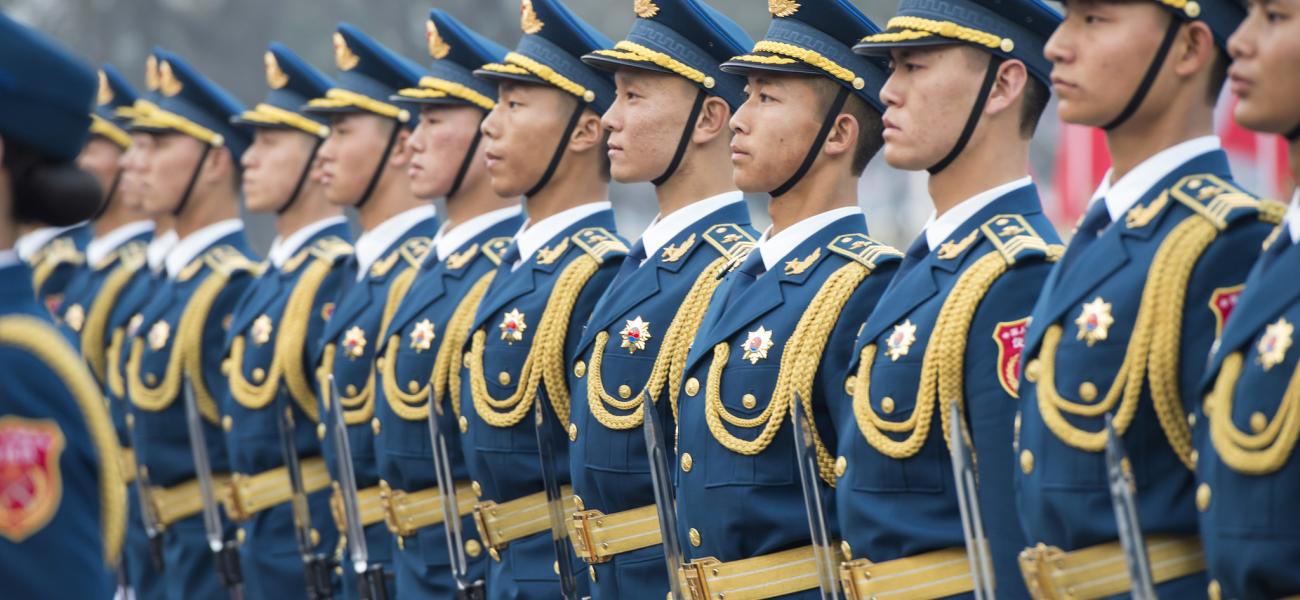In the Thick of It
A blog on the U.S.-Russia relationship
Will Russia’s War in Ukraine Deter China From Invading Taiwan?
As Taiwanese defense officials fret over delays in shipments of American weaponry, likely linked to U.S. arms transfers to Ukraine, a retired U.S. general hesitated to predict whether Russia’s war against its neighbor would impact Chinese decision-making about Taiwan. But Harvard professor Graham Allison—a former assistant secretary of defense and author of a 2017 book on avoiding war with China—hazarded a guess: Even though “Xi Jinping and China will have Russia’s back through this,” he said last week, Moscow’s military campaign has likely reduced Beijing’s appetite for an invasion of the island democracy.
Allison pointed to seven pain points China could be worried about as it watches Moscow struggle on the battlefield:
- The complexity of integrated military operations, Russia’s capacity for which has proved “abysmal”;
- Problems with modern Russian weapons, many of which are in the Chinese arsenal;
- The excellent work of U.S. intelligence, particularly in gauging Putin’s strategic plans;
- The wealth of U.S. technological and operational assistance to Ukrainian forces;
- Western financial sanctions, which may inspire anxiety in Beijing over the possibility of a financial crisis and resulting instability;
- The prevalence of social media, even in China, where many young people are seeing the war in ways similar to Westerners despite Chinese government messaging; and
- The fact that the Biden administration has successfully branded Putin and his supporters global pariahs, which could exacerbate Chinese fears of isolation.
Figuring out the calculus of longtime strongman rulers like Xi and Russia’s Vladimir Putin is no mean feat, cautioned Lt. Gen (ret.) Wallace Gregson, a former U.S. Marine Corps commander in the Pacific who now directs China research at the Center for the National Interest. “Autocratic leaders who have been in office with unchallenged tenure or unchallenged authority are impervious to our systems of logic on whether it makes sense to invade a country,” he said in conversation with Allison at a CftNI-hosted event about Ukraine’s impact on China’s foreign policy. Given Xi’s supreme leadership status, Gregson said he would not count on the Chinese president acting rationally from a Western perspective: “We need an insurance policy.”
The View from China
Several Chinese scholars and one senior official, meanwhile, have downplayed fears of a Taiwan invasion recently, publishing English-language essays in which they emphasize Beijing’s pursuit of peace, its potential role in helping the West ensure global security and its focus on economic rather than military strength.
“Some are linking Taiwan to Ukraine and playing up the risks of a conflict across the Taiwan Strait,” Chinese Ambassador to the United States Qin Gang wrote last month, but “China loves peace and opposes war.” Beijing and Washington should avoid “another Cold War in the aftermath of the Ukraine crisis,” he argued, and “seek maximum common ground in addressing the cooling of the international political climate” with the aim of “an arrangement for lasting peace and stability in Europe acceptable to all parties.”
Like Qin, Chinese realist scholar Wang Yiwei also emphasizes “China’s peaceful rise” and laments the assumption that Beijing’s no-limits (or “not capped”) partnership with Russia means “an automatic de facto endorsement of … Putin’s decision to attack Ukraine.” Predicting that Europe will be weakened by the Ukraine conflict, Wang writes that “China and the EU should and will cooperate to promote the construction of a mutually beneficial European security mechanism.”
One of China’s most prominent political scientists argues that “as long as the United States does not offer military support for a Taiwanese declaration of de jure independence,” China is likely to maintain its “path of peaceful development” and its focus on economic might. “As the world’s second-largest economic power, China intends to play an important role in shaping global economic norms. But it has no ambition to play a leading role in global security affairs … because of the huge military disparity between it and the United States,” Yan Xuetong, dean of the Institute of International Relations at Tsinghua University, wrote this month in Foreign Affairs. “Shaping a peaceful environment favorable to China’s economic development remains an important diplomatic goal.”
Nuclear Deterrence and US Strategy
In last week’s discussion, Gregson also asserted that Beijing is likely taking note of the fact that Russia’s nuclear deterrent is effectively preventing a U.S. military intervention in Ukraine. Allison pointed out that this is nothing new. “That’s what we learned during the Cold War,” he said, recalling the concept of “mutually assured destruction” and Ronald Reagan’s maxim, reaffirmed last year by the U.S. and Russian presidents, that a nuclear war cannot be won and thus should never be fought. This meant “we had to live with lots of things we hate, even an Evil Empire,” Allison said, pointing out that successive U.S. administrations have avoided “a path that could escalate to a nuclear war for anything short of American national interests.”
The two men disagreed somewhat on U.S. strategy toward China and Taiwan. While Gregson argued that “strategic ambiguity has had its day” and the U.S. needs “to make sure everyone understands what our position is vis-à-vis the security of Taiwan,” Allison countered that doing away with strategic ambiguity could prove more of a provocation than a deterrent. He maintained it is crucial to prevent a Taiwan invasion as it would lead the United States into a fight it cannot win. The two likewise debated the relevance of Henry Kissinger’s China policy, which Allison sees as having proven itself over the course of five decades but Gregson considers no longer as relevant as it used to be given shifting Chinese strategies and capabilities. Finally, Allison praised the Biden administration for its awareness that China is a Thucydidean rival—a rapidly rising power that poses a serious threat to the United States’ role as a predominant ruling power—and for its work to strengthen Washington in that dynamic.
Flickr photo shared under a Creative Commons license.

